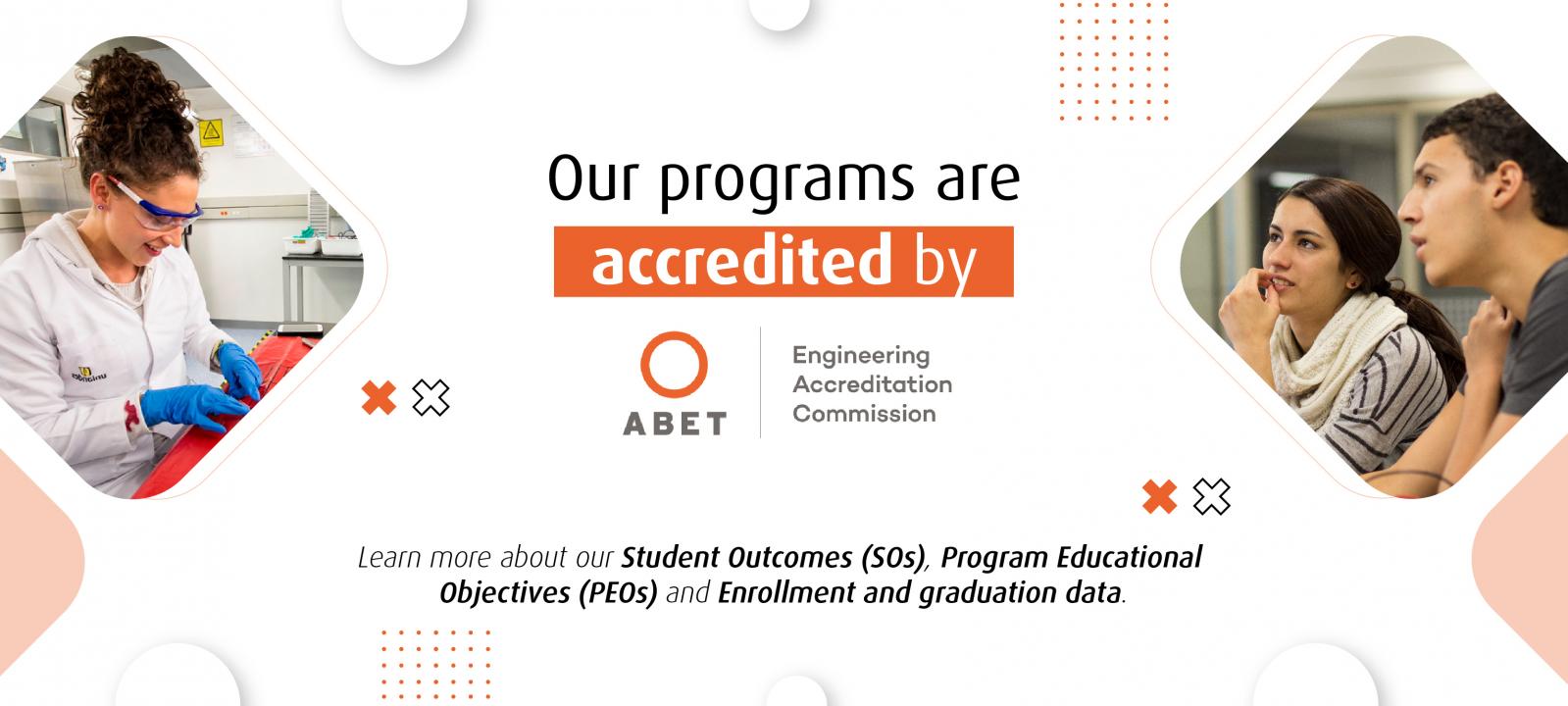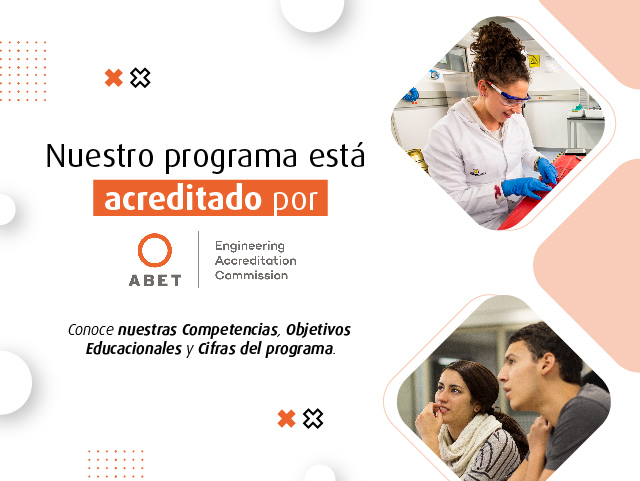ABET Accreditation
Mission
The School of Engineering of the Universidad de los Andes' mission is to educate engineers with the highest academic, global, ethical and personal skills, capable of leading the transformation of society and improving the quality of life of others.
It is also commited to lead research with high national and international visibility that positively impacts the region through the transfer of knowledge, technological innovation and solution design.
View here the regulations for Uniandes' students
ABET Accreditation
The Accreditation Board of Engineering and Technology (ABET) is a well-known nonprofit, nongovernmental agency that accredits programs in applied science, computing, engineering and technology. The standard ABET sets and the quality it has guaranteed for more than 80 years inspires confidence in those who aim to build a better world — one that is safer, more efficient, more comfortable and more sustainable.
The ABET Accreditation process is carried out by four accreditation commissions, one for each area mentioned above. Each commission establishes accreditation standards for specific program areas and degree levels. The mission of program evaluators, who come from academia, industry and government, is to certify that accredited programs meet the quality standards that produce graduates prepared to enter a global workforce.
ABET is not only an international quality seal. Above all, is a commitment that programs and institutions make to improve continuously. Names as Cornell, Stanford or MIT, as well as other in Latin America such as the Tecnológico de Monterrey, the Pontificia Católica de Chile and the Universidad de los Andes, have joined this high standard community.
Currently, 9 undergraduate programs from Uniandes’ School of Engineering have been accredited by ABET’s Engineering Accreditation Commission, some of them since 2009:
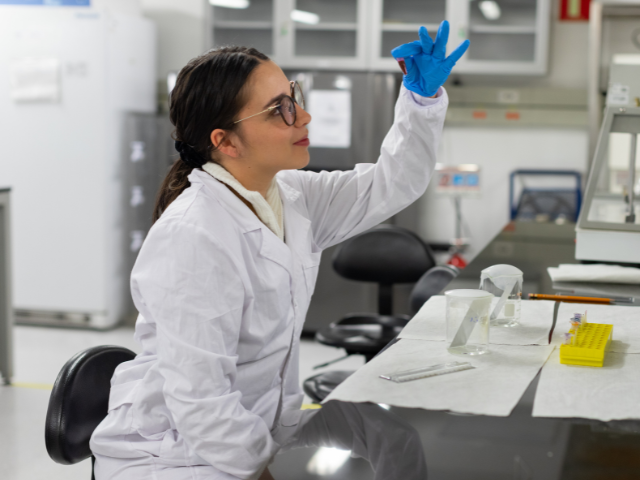

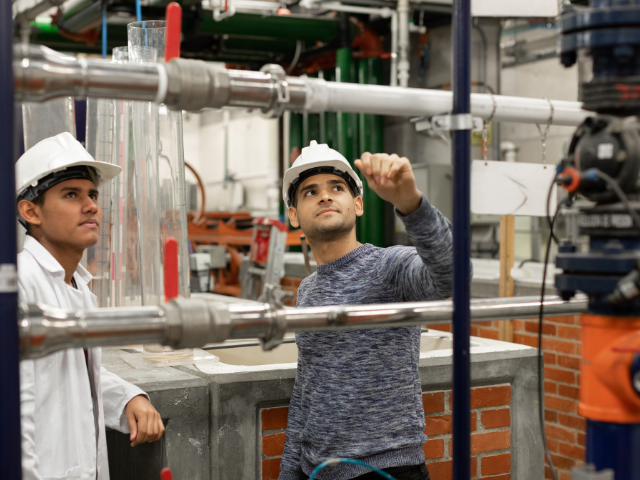
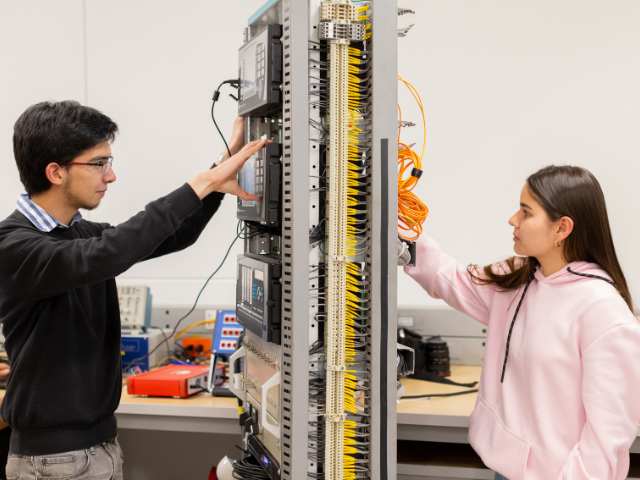
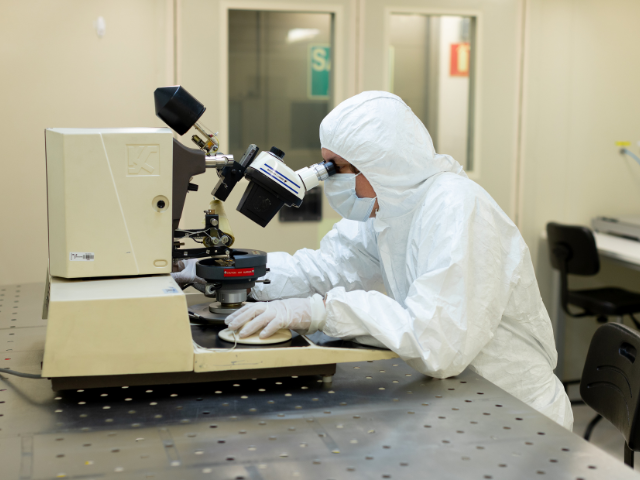
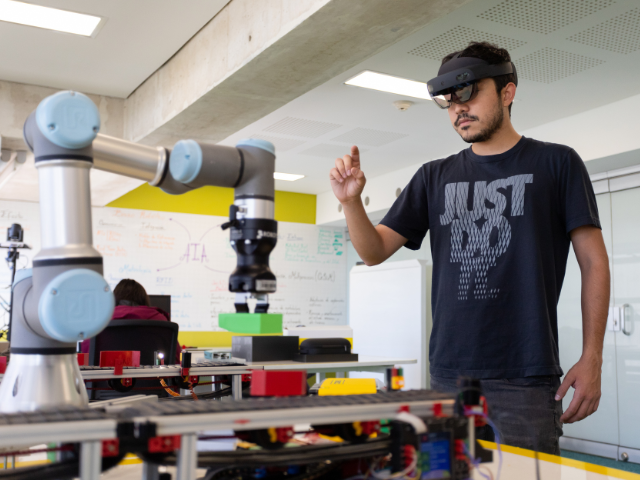
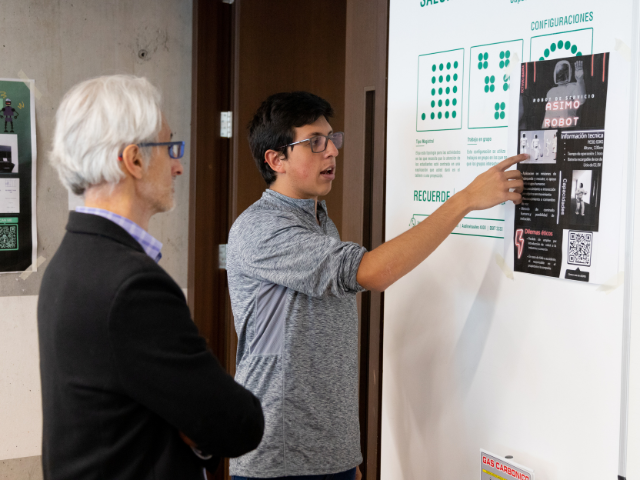

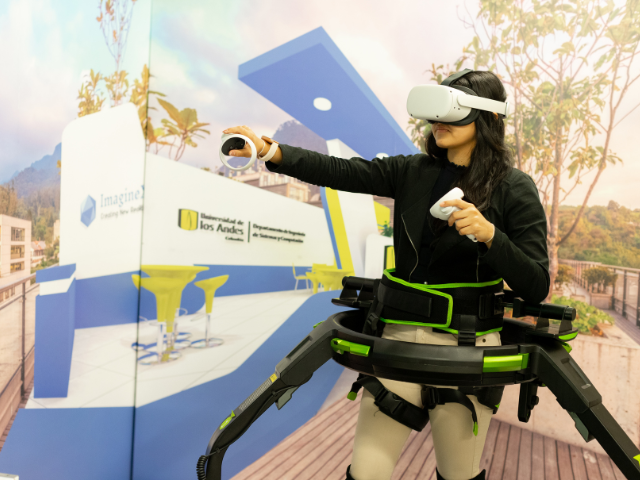
*The Food Engineering program began in 2019. For a program to be evaluated by ABET, it is required to have at least one cohort of graduates.
Why ABET Accreditation Matters?
A quality education makes a difference for your professional future. Graduates from an ABET-accredited program have a solid educational foundation and are capable of leading the way in innovation, emerging technologies, and in anticipating the welfare and safety needs of the public.
The quality of education you receive makes a big difference in your career success. ABET accreditation:
- Verifies that your educational experience meets the global standard for technical education in your profession.
- Enhances your employment opportunities: multinational corporations require graduation from an accredited program.
- Supports your entry to a technical profession through licensure, registration and certification, all of which often require graduation from an ABET accredited program as a minimum qualification.
- Establishes your eligibility for many federal student loans, grants, and/or scholarships.
- Paves the way for you to work globally, because ABET accreditation is recognized worldwide through international agreements, and many other countries’ national accrediting systems are based on the ABET model.
What are the ABET requirements?
ABET accreditation has several criteria, one of the main ones is that the program that seeks to be accredited formulates its Program Educational Objectives based on its constituents of the discipline. ABET defines them as broad statements that describe what graduates are expected to achieve within a few years after graduation.
Another important requirement is that the programs specify and evaluate the Student Outcomes or results of their students. These outcomes describe what students are expected to know and be able to do by the time they graduate in relation to the skills, knowledge, and behaviors they acquire as they progress through the program. Teamwork, effective communication and ethical commitment are some of the skills that are evaluated in your program's curriculum.
ABET accreditation also requires that programs publish this information, along with some statistics such as the total number of students enrolled, first-semester enrollments, and the number of graduates. All this information is available at the 9 accredited programs websites. We invite you to explore it and to understand the value of ABET accreditation for the School of Engineering. For more information about ABET, visit its official website here.
Biomedical Engineering
SNIES: 91142 | Qualified Registration: Resolution 2009 of February 13, 2018 for 7 years. | Duration: 8 semesters. | Mode: Classroom.
Environmental Engineering
SNIES: 8189 | Qualified Registration: Resolution 14660 of July 18, 2016 for 7 years. | Duration: 8 semesters. | Mode: Classroom.
Civil Engineering
SNIES: 1539 | Qualified Registration: Resolution 7456 of June 14, 2013 for 8 years. | Duration: 8 semesters. | Mode: Classroom.
Electrical Engineering
SNIES: 1541 | Qualified Registration: Resolution 13312 of August 14, 2018 for 10 years. | Duration: 8 semesters. | Mode: Classroom.
Electronic Engineering
SNIES: 4690 | Qualified Registration: Resolution 8073 of May 17, 2018 for 10 years. | Duration: 8 semesters. | Mode: Classroom.
Industrial Engineering
SNIES: 1542 | Qualified Registration: Resolution No. 17325 of December 27, 2019 for 8 years. | Duration: 8 semesters. | Mode: Classroom.
Mechanical Engineering
SNIES: 1543 | Qualified Registration: Resolution 8040 of May 11, 2021 - Validity 8 years
Chemical Engineering
SNIES: 4017 | Qualified Registration: Resolution 008232 of May 18, 2021 for 7 years. | Duration: 8 semesters. | Mode: Classroom.
Sistems and Computing Engineering
SNIES: 1540 | Qualified Registration: Resolution 16926 of December 27, 2019 for 10 years. | Duration: 8 semesters. | Mode: Classroom.
